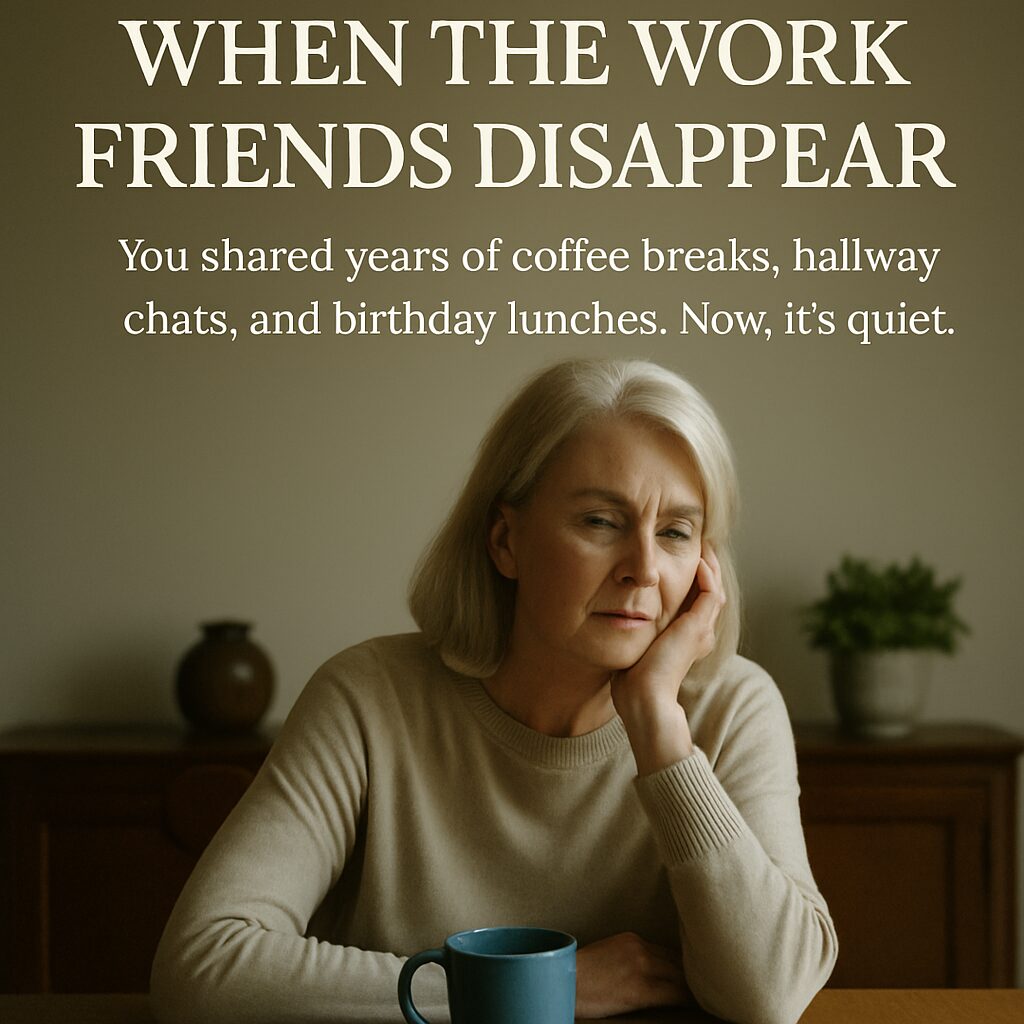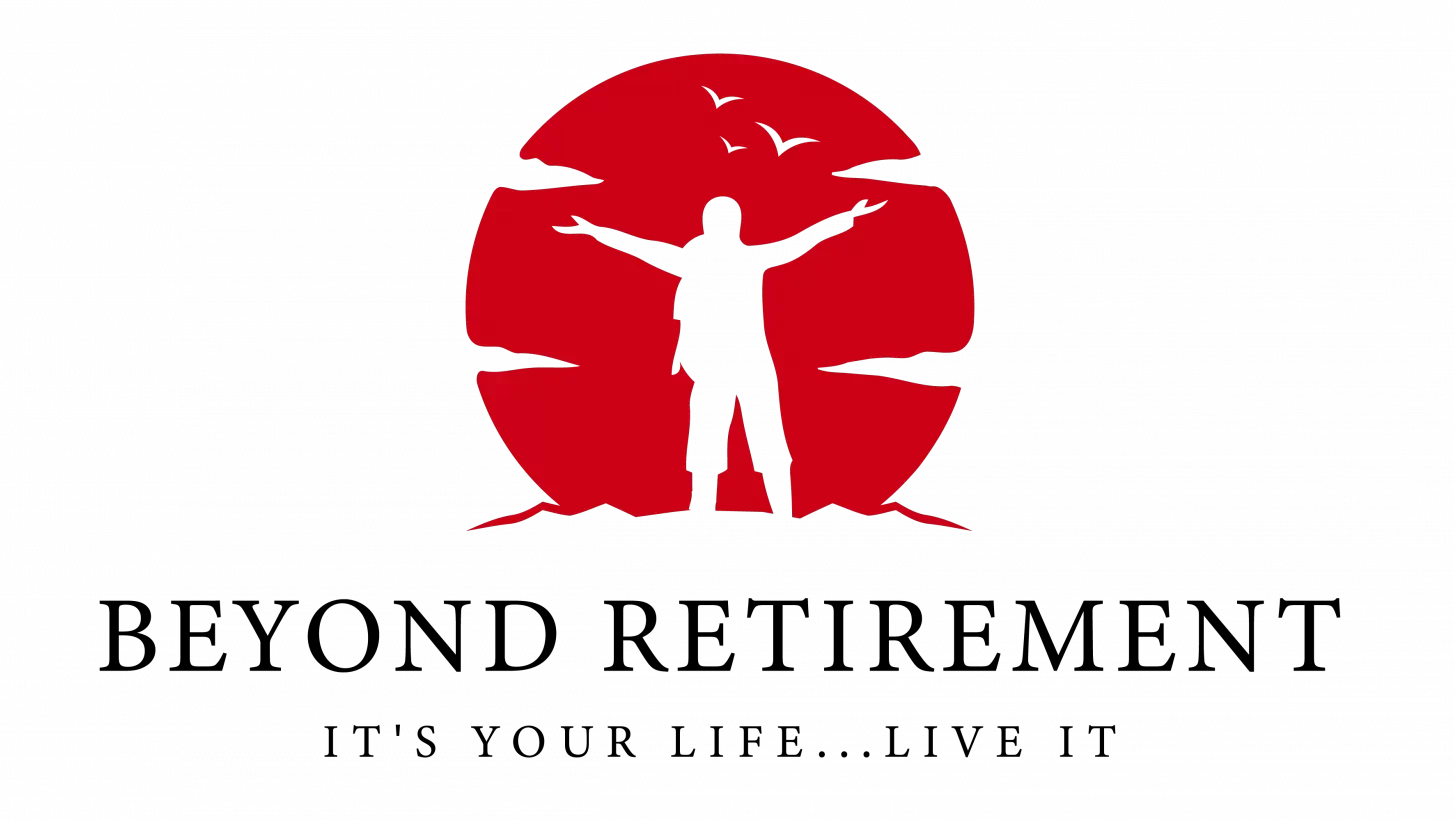
You shared laughter over lunch breaks. Exchanged stories in the hallway. Celebrated birthdays, work wins, and retirements. And then, just like that—it’s over.
No farewell party can truly prepare you for the quiet that follows.
When you leave the workforce, it’s not just your job that ends—it’s the entire ecosystem of social connection that surrounded it. The coworkers you saw more than your own family. The rhythm of check-ins, small talk, inside jokes. The comfort of being known—not just as a professional, but as a person.
And then the phone stops ringing. Group chats go silent. You scroll past a post about someone’s birthday and realize you forgot. Or they forgot yours.
No one talks much about this part. But it’s real. And it can hurt more than you expected.
A Loss That Doesn’t Make a Sound
There’s no obituary for a work friendship. It doesn’t end in a fight or a grand goodbye. It just… fades. Life moves on. So do people. And while some relationships hold, many do not.
It can feel like you’ve lost a piece of yourself—because you have. You’ve lost the version of yourself who was woven into a community, who had a role to play and a place to be every day.
This is one of retirement’s quietest heartbreaks. And like any loss, it deserves to be grieved.
Grief Is a Form of Love
It’s okay to miss them. It’s okay to feel awkward or left behind. You’re not being overly sensitive. You’re being human.
This post isn’t here to tell you to “get out there” or “make new friends” (though you may want to). It’s here to say: pause first. Let yourself feel what’s been lost. Honor those friendships for what they were. They mattered. They were real. And they supported you through decades of your life.
Maybe you’ll rekindle some of them. Maybe a holiday message will lead to coffee. Or maybe not. Either way, you get to decide how you carry those connections forward—in memory or in renewed presence.
Your Social Life Isn’t Over
If this quiet ache is something you’ve been carrying, know this: it doesn’t mean you’re broken. It means you’re wired for connection—and your body, your mind, your heart still crave it.
Work friendships may have ended, but the need for companionship hasn’t. You still deserve laughter, conversation, belonging. And it’s not too late to find it again—in new places, with new people, or in unexpected ways.
But start here. Start with honesty. Start by saying it out loud:
“I miss them.”
And let that be enough—for now.
In case you want a “solution-based” approach…
How to Rebuild Your Social Life After Leaving Work
You said goodbye to the office—but didn’t expect to feel quite so alone afterward.
It’s a common surprise: how much of your social life was built right into your job. The coffee chats, team lunches, birthday cards, and venting sessions in the break room. You didn’t just lose a schedule when you retired—you lost a social structure.
And while those connections may have faded, your ability to create new ones hasn’t.
Rebuilding a social life in retirement isn’t about forcing friendships. It’s about gently creating opportunities for connection, one small step at a time.
Here’s how to begin.
1. Start by Reaching Out to One Person
You don’t need to form a whole new friend group overnight. Start with one message. One email. One coffee invitation to an old coworker, neighbor, or community acquaintance. Most people are more open to reconnection than you’d think.
If someone doesn’t respond? That’s okay. Keep going. This is about planting seeds, not perfect outcomes.
2. Revisit Past Chapters
Think back to earlier seasons of your life. Is there someone from your parenting years, your neighborhood, a past hobby, or a long-ago book club you enjoyed? Retirement is a great time to rekindle low-pressure, familiar connections.
A quick “I was thinking of you today—how are you doing?” can open a meaningful door.
3. Show Up Where People Gather
You don’t need to be an extrovert to connect with others. Join a class, a walking group, a faith community, or a volunteer team. Look for recurring activities, where familiarity builds slowly over time.
Sometimes just being in a shared space consistently leads to organic relationships.
4. Create Light Structure
If unstructured time is part of what makes you feel isolated, add some gentle social rhythm to your week. Maybe Tuesday is your café morning. Thursday is library hour. Saturday is phone call day. Routine makes connection feel easier to manage—and gives you something to look forward to.
5. Embrace Your Role as a Connector
Sometimes you’re the one who creates the space. Host a casual coffee hour. Start a small interest group. Organize a recurring walk or potluck. Others may be just as eager for connection but unsure how to initiate it.
You have the life experience, empathy, and time to bring people together.
You’re Not Starting Over—You’re Starting Fresh
Losing work friends is real—but it doesn’t mean your social life is over. It means it’s ready to evolve.
This chapter invites you to connect not out of obligation, but from intention. Not just with who’s around, but with people who align with who you are now.
You’re not alone in missing the people who once filled your days.
And you’re not alone in hoping for connection again.
It begins with a single hello.

